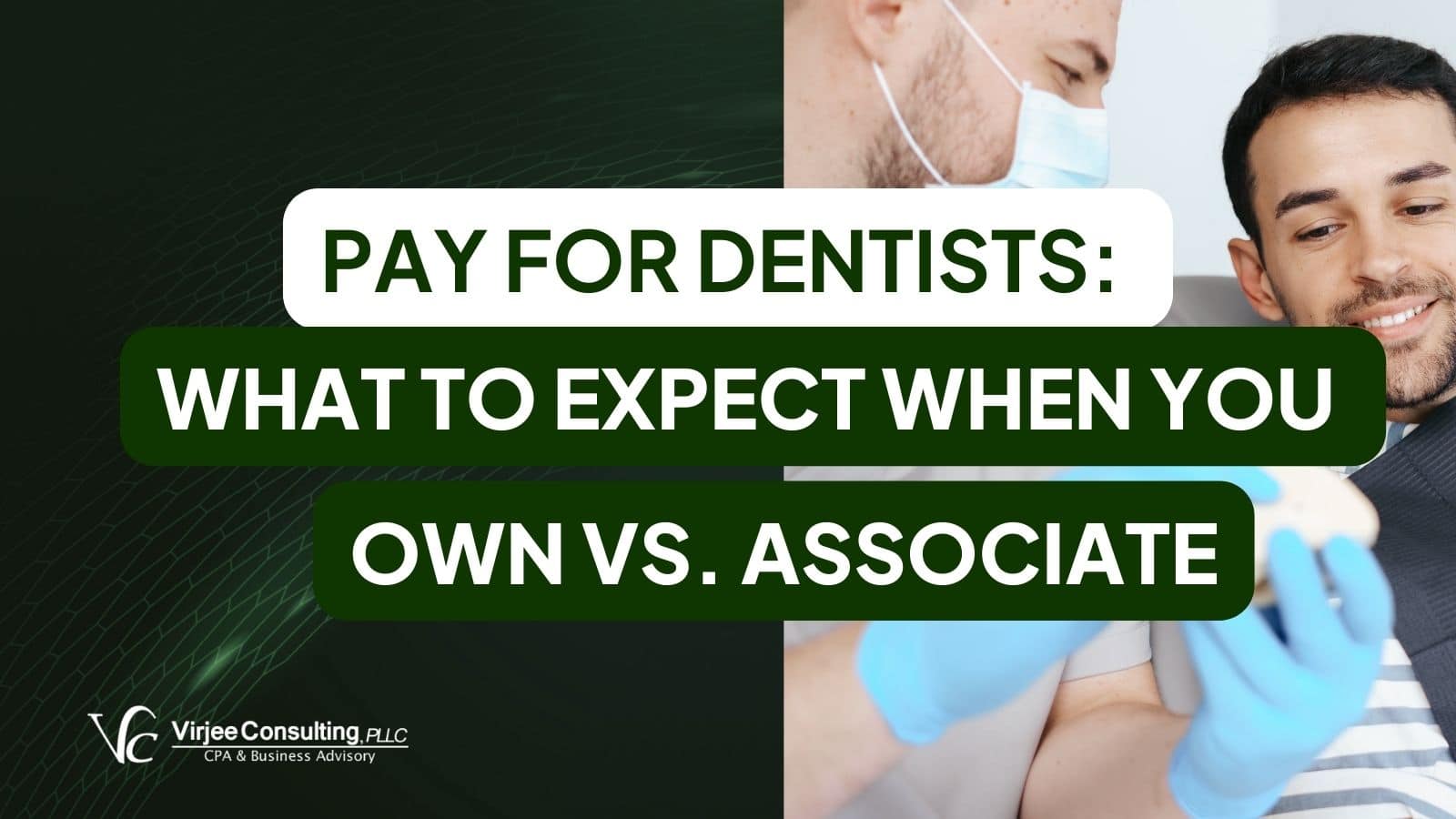If you are a dentist trying to decide whether to stay an associate or become an owner, the Pay for Dentists quickly becomes a key consideration—and it’s often the easiest thing to misunderstand. Both paths can offer strong earnings, but they deliver income in very different ways.
More than that, there are trade-offs with pay for dentists and additional responsibilities that come with the territory of business ownership. Let’s walk through the real differences in how owners and associates get paid, and what to expect in each role, so you can decide what works best for you.
Pay for Associate Dentists
According to the latest DentalPost Annual Salary Survey, the average full-time income of general dentists who are employed associates is $225,929 in 2024.
An associate dentist’s Pay for Dentists is primarily based on clinical time. However, dental compensation models can be surprisingly complex. Rather than just a fixed annual salary, these are the most common compensation structures:
- Straight salary
- Salary plus commission
- Straight commission
- Net profit
Each model comes with its own nuances. Understanding the contractual terms that govern your pay or deduction is crucial as the difference can be tens of thousands of dollars a year. The American Dental Association walks through common compensation models and what you can expect to see in a contract.
Pay for Dental Practice Owners
Following the same DentalPost Annual Salary Survey, the average full-time income of general dentists who are practice owners or partners is $320,615 in 2024.
Dental practice owners get paid in two ways:
- Compensation as a practicing dentist, which is how much the owner decides to pay himself as a dentist
- Share of the practice’s profits
For practice owners, Pay for Dentists depends largely on how profitable the practice is. Expenses such as rent, staff wages, lab fees, supply costs, lease obligations, and inefficient scheduling can eat into profits. When these costs are managed effectively, owners can earn significantly. But when overhead rises, owners are often the first to feel the impact.
Other Considerations: Taxes, Payroll and Retirement Matters
Beyond the take-home pay, there are other differentiators between being an associate and owning your own dental practice. Tax planning is one of them.
As an associate, Pay for Dentists comes with a simpler tax situation. Most associates are employees, so the employer handles payroll taxes and withholdings. This means you don’t need to manage payroll compliance or tax filings for the practice. The trade-off is fewer opportunities to reduce business taxes or contribute very large amounts to retirement plans. Still, associates have solid options to save for retirement and manage taxes effectively. For strategies on maximizing tax benefits as a practice owner, see The Qualified Business Income Deduction for Dental Practice Owners.
As a practice owner, Pay for Dentists comes with more control over how money flows through the business. This allows extra opportunities to save on taxes and build retirement savings. Owners can select the business structure that fits their goals, decide how much of their income is salary versus owner distributions, and establish retirement plans that let them contribute more each year than standard employee plans. These choices can significantly impact how much money they keep after taxes.
However, owners have the additional responsibility of running the payroll, the associated taxes, as well as ensuring compliance.
How To Decide If Ownership Makes Sense For You
Buying a practice can be a great move if you do it with both eyes wide open. Ownership makes sense when the share of the practice profits are more than what you would reliably earn as an associate doing the same dentistry work.
But there are trade-offs. Pay for Dentists as an owner comes with additional responsibilities, including managing staff, handling bills, maintaining equipment, and navigating growth or slow months. Owners also need upfront capital to purchase the practice and bear the financial risk if revenue declines.
If you value having more control over how the clinic runs and you want the chance to build equity you can sell later, those benefits can outweigh the extra work and risk.
If you prefer predictable pay, fewer headaches and no business liabilities, staying an associate may be a better fit.
Exploring the idea of owning a dental practice?
We have plenty of useful resources to help:
- Starting a Dental Practice – The Cost To Buy vs. Build
- Buying a Dental Practice Checklist
- What’s the Average Cost to Start a Dental Practice
Ready when you are
Whenever you’re ready to buy an existing practice or build one from the ground up, we’re here to help.
At Virjee Consulting, we help dental practice owners and associates navigate issues like due diligence, bank financing and financial projections with confidence. Learn more about how we help when buying a dental practice here.
Have questions?
Our team of dental CPAs and industry experts are just one meeting away. Fill out our contact form below.
Until next time.

